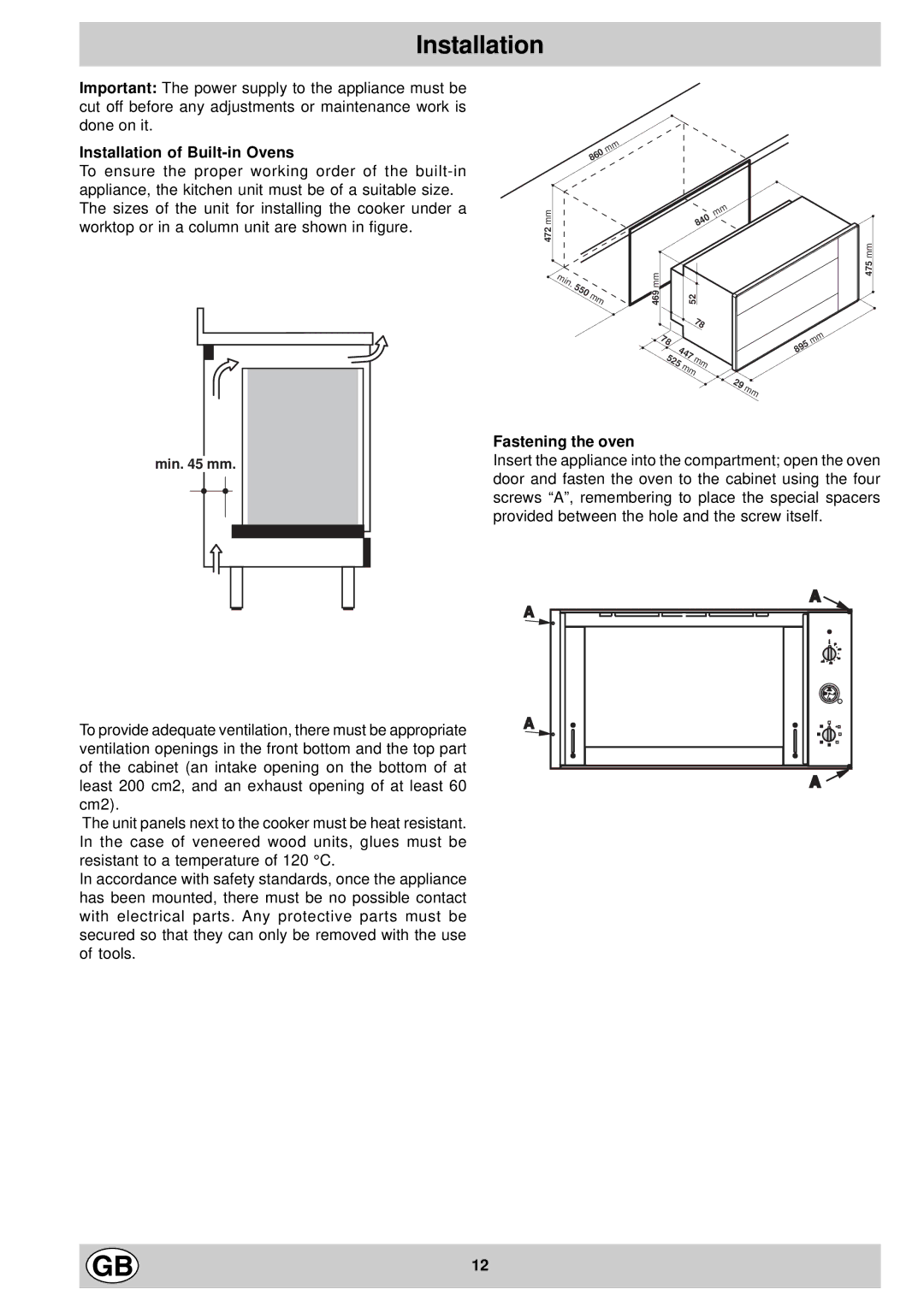
Installation
Important: The power supply to the appliance must be cut off before any adjustments or maintenance work is done on it.
Installation of Built-in Ovens
To ensure the proper working order of the
min. 45 mm. |
|
| 860 | mm |
|
|
|
|
|
|
|
|
|
|
|
|
| |
mm |
|
|
|
|
| mm |
|
|
|
|
|
| 840 |
|
|
| |
472 |
|
|
|
|
|
|
| |
|
|
|
|
|
|
| 475 mm | |
min. | 550 |
| mm |
|
|
|
| |
| mm | 469 | 52 |
|
|
| ||
|
|
|
|
| ||||
|
|
|
|
| 78 |
|
|
|
|
|
| 78 |
|
|
|
| mm |
|
|
| 447 | mm |
| 895 |
| |
|
|
|
|
|
| |||
|
|
| 525 |
|
|
|
| |
|
|
|
| mm | 29 |
|
| |
|
|
|
|
|
| mm |
| |
|
|
|
|
|
|
|
| |
Fastening the oven
Insert the appliance into the compartment; open the oven door and fasten the oven to the cabinet using the four screws “A”, remembering to place the special spacers provided between the hole and the screw itself.
To provide adequate ventilation, there must be appropriate ventilation openings in the front bottom and the top part of the cabinet (an intake opening on the bottom of at least 200 cm2, and an exhaust opening of at least 60 cm2).
The unit panels next to the cooker must be heat resistant. In the case of veneered wood units, glues must be resistant to a temperature of 120 °C.
In accordance with safety standards, once the appliance has been mounted, there must be no possible contact with electrical parts. Any protective parts must be secured so that they can only be removed with the use of tools.
12
